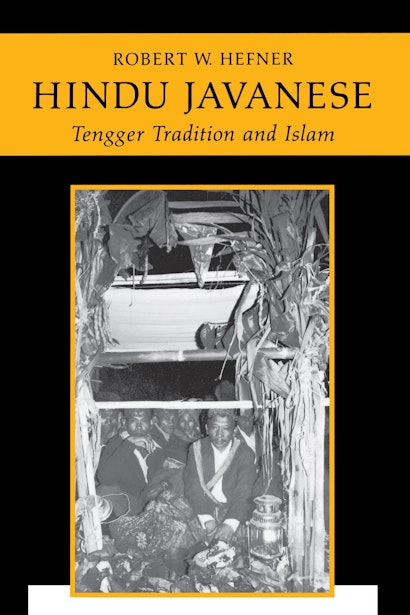Five centuries after the fall of its last Hindu Buddhist kingdom, Java retains only one small population that preserves a non-Islamic priestly tradition descended from early Hindu clergy. Known as the Tengger, these mountain Javanese lack the courts, castes, and religious scholars that transmit Hindu tradition in nearby Bali, the only other area in Indonesia to have kept a Hindu faith. What explains the cultural resilience of the Tengger? Robert Hefner blends historical and ethnographic research to explain the enduring strength of a religion in the face of a revitalized Indonesian Islam. He provides insight into Java’s earlier Hindu traditions and the process of Islamization that swept them aside and shows how the Tengger example speaks not only to cultural change in a corner of Java but to the dissolution of traditional religions amid the advance of world faiths.
Exploring how meaning is derived from public symbolism, Hindu Javanese emphasizes the centrality of tacit knowledge in religious practice and the role of history and community in continually shaping and renewing spiritual experience.
Robert W. Hefner is professor of anthropology at Boston University. His books include Civil Islam: Muslims and Democratization in Indonesia and Schooling Islam: The Culture and Politics of Modern Muslim Education (both Princeton).
"The most important study of Javanese religion since Clifford Geertz's Religion of Java (1960). An ethnographically rich and historically detailed portrait of the last Hindu enclave in Muslim Java, Hefner's work is also a compelling account of the symbolic processes involved in religious conversion. . . . This is a brilliant study which is certain to appeal to readers concerned with post-structuralist theory as well as specialists in Asian Studies, Hinduism, and Islam."—Choice
"Elegantly written, convincingly argued, and painstakingly researched, this study of a Javanese mountain people is the most paradigmatic work in the anthropology of religion to appear since Nuer Religion."—E. Valentine Daniel, Religious Studies Review
"The description of ritual, the priestly role, and prayer in the contemporary setting is careful, subtle and original. The challenges from and reactions to Islam are well delineated."—R. H. Barnes, Times Literary Supplement
“This book is an exemplary model of sophisticated use of sociological and semiotic theory in the analysis of complex historical and ethnographic materials. It will interest not only anthropologists and Indonesianists, but also historians, linguists, and students of the history of religion and mythology. The general reader would also enjoy the work, for it is gracefully and vividly written.”—Hildred Geertz, Princeton University

